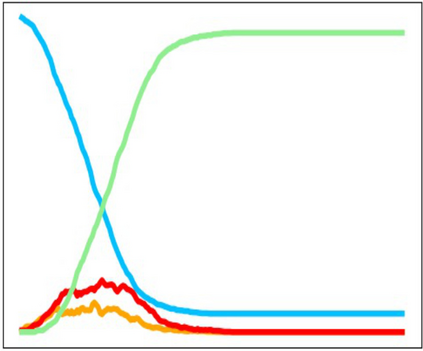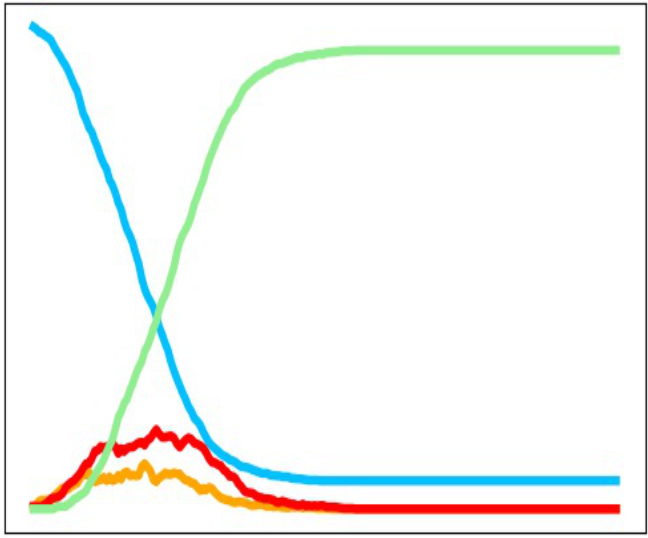Over the last two years, governments all over the world have used a variety of containment measures to control the spread of COVID-19, such as contact tracing, social distance regulations, and curfews. Epidemiological simulations are commonly used to assess the impact of those policies before they are implemented in actuality. Unfortunately, their predictive accuracy is hampered by the scarcity of relevant empirical data, concretely detailed social contact graphs. As this data is inherently privacy-critical, there is an urgent need for a method to perform powerful epidemiological simulations on real-world contact graphs without disclosing sensitive information. In this work, we present RIPPLE, a privacy-preserving epidemiological modeling framework that enables the execution of a wide range of standard epidemiological models for any infectious disease on a population's most recent real contact graph while keeping all contact information private locally on the participants' devices. In this regard, we also present PIR-SUM, a novel extension to private information retrieval that allows users to securely download the sum of a set of elements from a database rather than individual elements. Our theoretical constructs are supported by a proof-of-concept implementation in which we show that a 2-week simulation over a population of half a million can be finished in 7 minutes with each participant consuming less than 50 KB of data.
翻译:过去两年来,全世界各国政府都使用各种各样的遏制措施来控制COVID-19的传播,例如接触追踪、社会距离条例和宵禁。流行病模拟通常用于在实际实施之前评估这些政策的影响。不幸的是,它们的预测准确性因缺乏相关经验数据、具体详细的社会联系图而受阻。由于这些数据本质上是隐私的关键,因此迫切需要一种方法,在真实世界接触图上进行强有力的流行病学模拟,而不披露敏感信息。在这项工作中,我们介绍了一个保护隐私的流行病学模型框架RIPPLE,这个框架使得在人口最新真正接触图上针对任何传染病执行一系列标准流行病学模型,同时在参与者的装置上保持所有与当地私人联系的信息。在这方面,我们还介绍了PIR-SUM,这是私人信息检索的一个新扩展,使用户能够安全地从数据库而不是单个元素上下载一组元素的总和。我们理论结构得到了一个证据性的概念支持,即对每个传染病进行隐私保存的流行病学模型框架,使得每个人口的最新真正接触图能够执行一系列标准的流行病学模型,同时在参与者身上显示每50万分钟的模拟数据。







